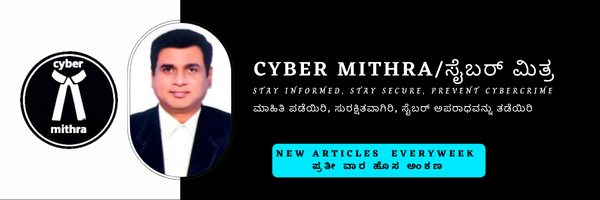Beware of Election related cyber scams
Harris received a WhatsApp message from his friend on their school WhatsApp group, claiming that “BJP Free Recharge Yojana, Prime Minister Narendra Modi is giving 3 months free recharge to all Indian users so that more and more people can vote for BJP in the 2024 elections. Now click on the link given below and get 3 months*Free Recharge*(Last Date – 15 OCTOBER 2024)”. Harris believed it and clicked on the link, his phone got hacked and one of the first things he noticed was that above message was sent to all his contacts and groups in his WhatsApp.
National Election season has started, and like the above cyber scam many other election related scams are making lots of news nowadays. Some of the other prominent cyber frauds in news include :
- Phishing attack using social engineering methods like verify your voter id details or your voter id will be inactivated etc, where the voters are made to click a link and install a malware or disclose their personally sensitive information like phone number, Aadhaar, voter id and PAN details.
- Deep fake videos of political leaders or fake survey results is made viral to influence the voting decisions or incite communal violence.
- Fake fund raising emails with links or QR codes are circulated on behalf of political parties or candidates to people with the purpose of looting or defrauding innocent followers.
- There may be attempt to disrupt electioneering process by attacking critical digital infrastructure through DDoS cyber attacks or Ransomware attacks.
BBC had to issue a clarification that it had not commissioned any pre-poll survey in Karnataka last month. Election commission has developed a cVigil App to allow public to report any of the above issues.
To protect yourself from such Election related frauds :-
- Always follow the principle of ‘ Zero Trust, Pause and Authenticate’ for all digital transactions and messages/offers from unknown people.
- Always check the source and verify if the news is genuine or fake before acting on such news or information.
- Never click on a hyperlink or scan a QR code or install any App provided in a message or mail by a stranger.
- Never share personal sensitive information like Aadhaar or PAN details or your phone number.
- Always use good AntiVirus, Firewall and VPN software on your devices and keep it updated with latest security patches.
- Regularly update your operating systems and applications to patch any vulnerabilities.
If you are a victim of such Election related fraud :-
Immediately call 1930 cyber helpline or file a complaint at cybercrime.gov.in website or nearby police station. Report and lodge a complaint with the Election Commission and the respective social media website about the fraud. Raise a debit freeze on the amount transferred by you with the help of police. If you think your device is infected with a malware, format it or factory reset after taking backup.
Legal remedies available to the victim :-
You can register a criminal case at your nearest cyber or regular police station, under the following legal sections or the Act as per sections prescribed by the police based on your case :
- Section 378(Theft), 419 (punishment for cheating by impersonation) and 420 (cheating and dishonestly inducing delivery of property), Section 424(extract data illegally), Section 441(criminal trespass), Section 467(Forgery), Section 468(Punishment for Forgery), and Section 471(Usage of Forged document) of Indian Penal Code(IPC).
- Section 43 (Penalty and compensation for damage to computer, computing device etc.), section 65 (Tampering with computer), section 66 (punishment for computer related offences – a person committing data theft, transmitting virus into a system, destroying data, hacking, or denying access to the computer or network to an authorized person), section 66C(which prescribes penalties for identity theft and states that anyone who fraudulently or dishonestly uses a person’s identity information) and Section 66D (punishment for fraud by impersonation using computer resources) under the Information Technology Act(IT) Act 2000.

